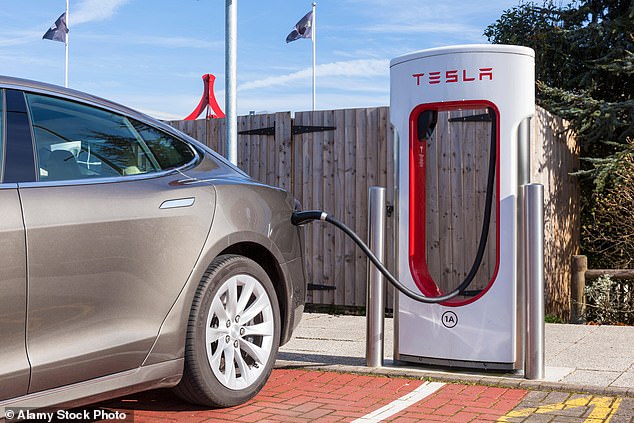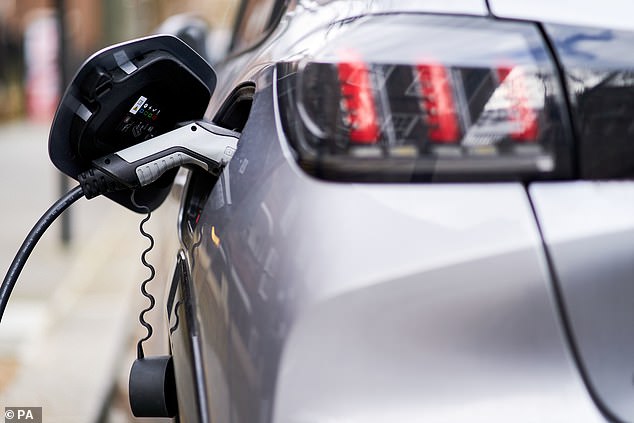Electric cars will NEVER dominate the market, says Toyota
- Akio Toyoda, the automaker’s chairman, said battery-powered vehicles will one day capture only 30 percent of the global market.
Electric cars will never dominate the car market, according to the world’s largest car manufacturer Toyota.
The Japanese automaker’s chairman said battery-powered vehicles will capture only 30 percent of the global market.
His comments raise concerns about the willingness of consumers to sign up to the net-zero targets set to tackle the climate crisis.
Akio Toyoda said traditional combustion engine cars, hybrids and hydrogen fuel cell vehicles would make up the rest of the market.
The chairman – whose grandfather founded Toyota in Japan in 1937 – said the shift to electric vehicles is not the answer when a billion people worldwide are still living without electricity and therefore would not be able to charge an electric car.
Electric cars will never dominate the car market, according to the chairman of the world’s largest car manufacturer Toyota
“We also supply vehicles to these regions, so a single BEV option cannot provide transportation for everyone,” he said in comments on Toyota’s website.
“That’s why I try to have different options. No matter how much progress BEVs make, I think they will still only have a 30% market share.”
He said the remaining 70 percent of vehicles would include other types of greener vehicles, but added: “Motor cars are definitely here to stay. I think this is something that customers and the market will decide, and not about regulatory values or political power.”
Toyoda pushed back against the focus on battery EVs at the expense of alternatives, saying: “The enemy is CO2. So let’s all think about reducing CO2 emissions.’
Governments around the world are urging motorists to ditch petrol and diesel cars in favor of electric alternatives in a bid to meet climate targets.
By 2024, sales in the electric vehicle market are expected to reach a staggering $623.3 billion globally, with 3.7 million electric vehicles sold worldwide in the third quarter of 2023 alone – accounting for 18 percent of global sales of passenger cars.
According to the International Energy Agency, electric car markets have seen exponential growth, with the share of EV sales falling significantly in three years – from 4 percent in 2020 to 14 percent in 2022 and to 18 percent in 2023.
Car brands such as EV carmaker Tesla have surged in popularity, while others – including Toyota – have expanded their portfolios to include more electric vehicles.

Toyota’s chairman said battery-powered vehicles will only ever capture 30 percent of the global market, raising concerns about consumers’ willingness to join net-zero targets set to tackle the climate crisis.

Akio Toyoda said traditional combustion engine cars, hybrids and hydrogen fuel cell vehicles would make up the rest of the market
Meanwhile, half of the world’s electric cars are now in China.
But there is reluctance among some motorists due to fears about the cost of electric cars and the lack of available infrastructure such as charging points.
The time it takes to charge an electric car (compared to filling up a tank) and the viability of an electric vehicle over long distances have also led to some reluctance.
Last year, Rishi Sunak postponed the ban on the sale of new petrol and diesel cars in Britain from 2030 to 2035 after a campaign by the Daily Mail.
